Parking fines are a source of frustration when driving in Italy just as much as anywhere else.
Getting a fixed penalty notice stings, and it can happen easily enough whether you’re a resident or visitor – especially if you’re not yet familiar with the Italian road rules.
READ ALSO: How visitors to Italy can avoid driving penalties
Here’s what to watch out for when parking in Italy, and what you can do if you do receive a penalty.
Types of parking fines
It’s pretty easy to get landed with a parking fine if you don’t know the Italian road system. Your first priority is to check the colour of the lines you park in and the accompanying road signs, as these are an indicator of whether you need to pay and how much.
If you’re not using a paid-for car park or ‘parcheggio‘, you’ll mainly come across blue, yellow and white parking lines across Italian towns and cities.
Each of these carry different meanings for who can park there and the payment required.
They often work in combination with parking signs, so take care to read those in conjunction with the colours of lines you see on the road. For instance, you might see the parking ban symbol with workday hours, meaning you can only park there after working hours.
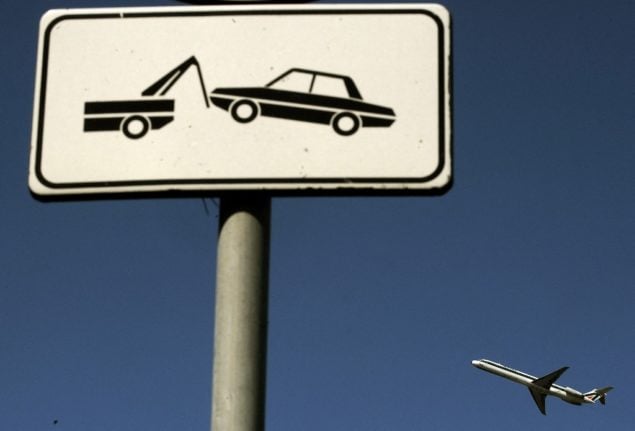
Blue lines generally mean that you need to pay to park your car there – but again, take care to check for any additional signs that may prohibit parking in certain hours.
To pay for your parking spot within blue lines, there are usually parking metres which will often accept coins, notes and bankcards. They almost always require your number plate (targa).
Some tabaccherie and edicole (kiosks) sell a parking scratch card called ‘gratta e sosta‘ (scratch and stay), which you activate by scratching off the date of parking and place it on your dashboard like a ticket.
There are also parking apps you can download ahead of time, like EasyPark and Phonzie – or you can simply look on the metre itself for different ways to pay, as some cities have their own parking app.
READ ALSO: Why the tabaccheria is essential to life in Italy – even if you don’t smoke
Yellow lines are reserved for certain users and vehicles, such as resident spaces, disabled car parking and service cars such as taxis.
There are sometimes also pink lines (parcheggio rosa) which are designated for pregnant women and mothers with children up to two years old. Anyone parking here would need a permit to prove they’re eligible to leave their car there.
White lines, on the other hand, usually mean that the parking is free, but always check the roadside for any additional signs or instructions in case.
Take care if you think there’s a parking spot with no lines at all. You wouldn’t be allowed to park near traffic lights or double park for example.
And if you’re driving a motorbike or scooter, resist the temptation to squeeze it in anywhere. Parking rules apply to these vehicles too, so if you leave your motorbike on the pavement like a bicycle, you may find it’s been removed – with a hefty fine to boot.
The fines vary from around €40 to over €400 according to article 157 of The Highway Code. How much you are demanded to pay depends on the violation and whether you decide to leave the engine running to keep the air conditioning on, for example.
How to pay your fine
This will depend on whether you’re a resident in Italy or just visiting.
If you receive the fine at an address abroad, you will be able to pay by international bank transfer. Read more about how to do this here.
If you live in Italy, you can normally pay fines at the post office (Poste Italiane) or online via a debit or credit card. Check the fine print though, as the payment process can differ in every Italian municipality (comune).
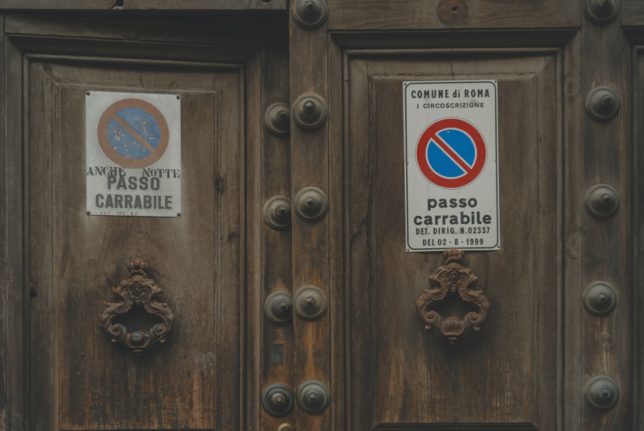
Deadlines
If you found a ticket on your windshield, you usually have 15 days to pay and you’ll get a discount if you pay it within five days.
If you receive it in the post, you have 60 days but again, will get a 30 percent discount if you transfer the funds within five days, according to article 202 of the Italian Highway Code. The timeframe differs for tickets received abroad – see more information here.
If you exceed the terms of 60 days, the fine will increase and will keep increasing for late payment interest.
The authorities assume no responsibility in postal delays.
How to contest a parking ticket
If you believe the parking fine is invalid, you can lodge an appeal. However, you’ll need to make sure that you truly have grounds to contest the penalty according to the Highway Code – claiming that you simply didn’t know you couldn’t park in a certain space won’t wash.
If you choose to appeal, you forego the chance to get a discount by paying immediately and instead risk the fine increasing in the meantime.
Note: you cannot contest a fine after paying it, as paying the fine indicates you acknowledge the offence.
Should your fine be truly invalid – and especially if it’s high – you may want to go ahead with navigating Italian bureaucracy to avoid paying it.
READ ALSO: ‘Expect the unexpected’: What you need to know about driving in Italy
Accepted reasons must prove a defect, such as if the fine you receive contains incorrect information.
So if the licence plate number, the date and time of the alleged infringement or the location of the fine are incorrect, you can dispute the parking fine.
Check whether the articles of the Highway Code that have been infringed are listed correctly and how to lodge an appeal. If these defects are present, it will be possible to challenge the fine.
However, bear in mind that you might not get away with it on a technicality. If the car model is incorrect but the registration number is right, it’s unlikely the fine will be cancelled.
Other reasons to contest a parking ticket in Italy include if the parking spot wasn’t clearly marked.
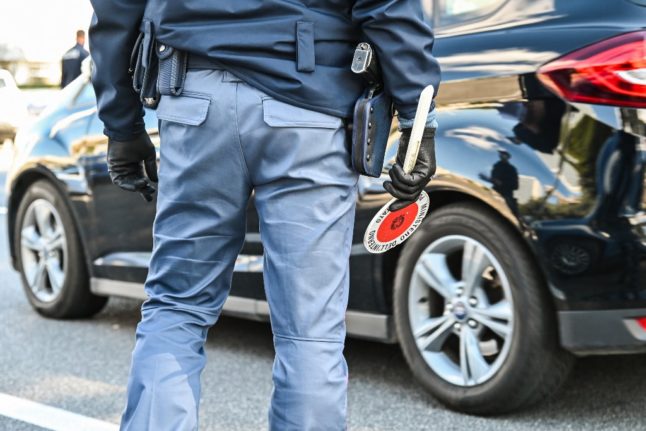
There are a few ways to dispute the fine. You can begin by contacting the municipality directly, but this doesn’t suspend the contestation. At the same time you can lodge an appeal with Prefect and the Justice of the Peace.
Appeals against fines before the Justice of the Peace can be submitted within 30 days of notification or assessment, while appeals to the Prefect can be lodged within 60 days.
This time limit starts from the moment you are aware of the fine. In other words, it runs from the date of receiving the fine.
Appeals to the Prefect must be made to the city where the violation was said to have been committed and must be written in Italian.
Contained in the letter are the reasons for contesting the fine and certain details such as your personal information, circumstances of the ticket, the legal grounds for the appeal and a request to cancel the fine.
This route is more administrative and reassesses what Italian traffic police deemed to be a violation of the Highway Code.
Appeals to the Justice of the Peace, on the other hand, are judicial.
Therefore, it’s clear that it’s best to refer to the Prefect in cases of obvious mistakes in a report, such as an incorrect licence plate number.
The judicial appeal must be sent by registered mail to the relevant municipality with return receipt or delivered in person to the clerk’s office.
As much evidence as possible will help your claim if you take this route, such as photographs and legal references showing how the fine is considered unlawful.
Please note The Local is unable to advise on individual cases. See full details of Italy’s Highway Code here and visit our travel section for the latest updates.

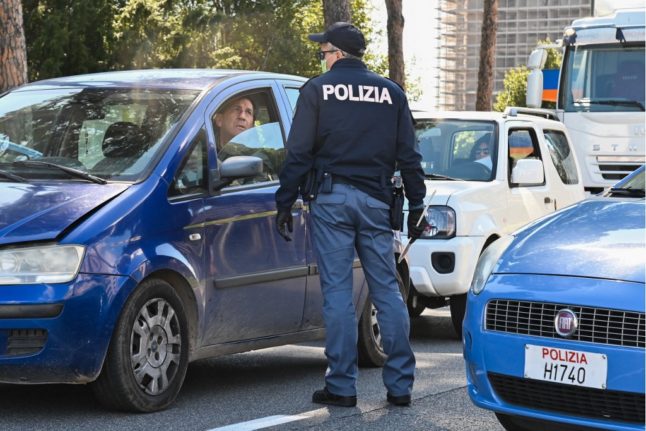
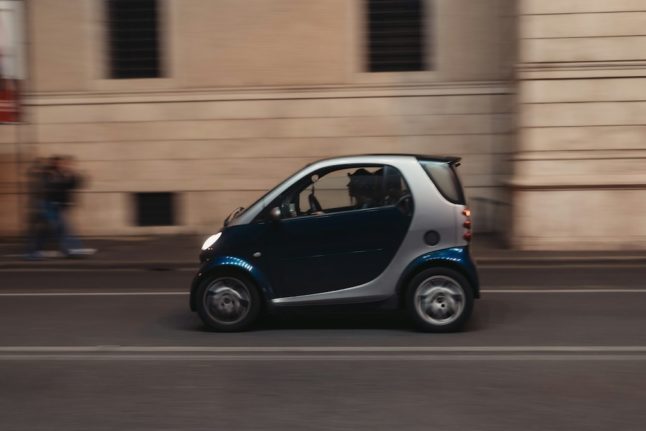
 Please whitelist us to continue reading.
Please whitelist us to continue reading.
Is there a fundamental reason I cannot pay a fine via credit card? I received a speeding ticket in the mail in the US for speeding on the autostrada in a rental car. It appears the only way to pay the fine is by international wire transfer. I would certainly pay it quickly if I could pay via credit card, but an bank wire transfer seems more difficult and something I have never done.